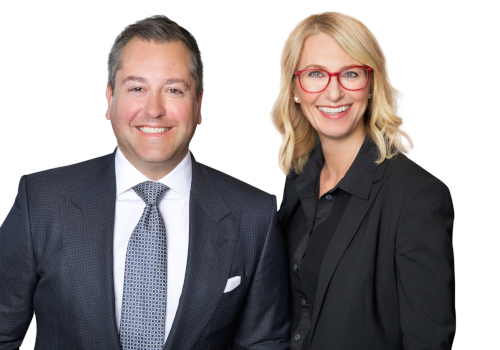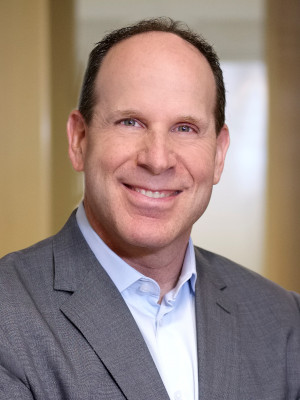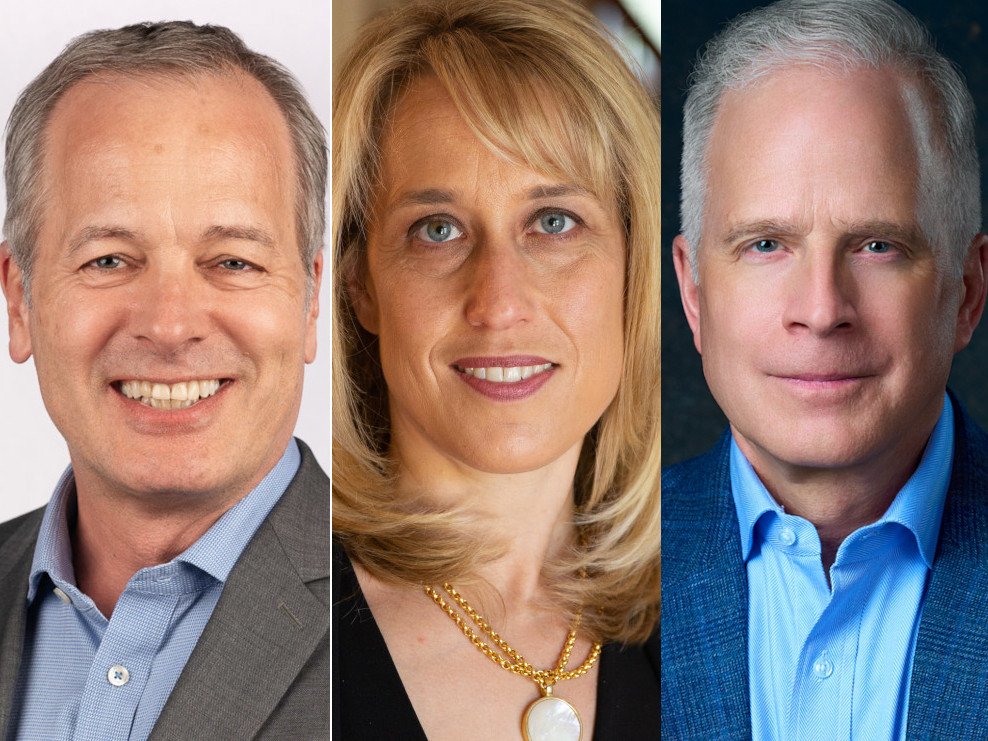It’s been a challenging time for wealthy families, their businesses and the advisors who serve them. The ever-shifting economic climate—President Donald Trump’s announcements, the accompanying wild market swings and Canada’s federal election—have led to much anxiety at family offices.
“People are challenged and don’t know what to do, because every day things change so drastically,” says Sloan Levett, partner and practice lead of the family office group at Fuller Landau LLP in Toronto. “They don’t know how to respond.”
Astonishing economic upheaval is certainly top-of-mind, but it isn’t the only thing going on. Advisors tell Canadian Family Offices that they and their clients are concerned about a possible recession and growing cybersecurity threats, as well as how to handle “new” wealth and manage U.S.-based vacation properties, among other challenges.
Here’s what’s keeping family office clients—and their advisors—up at night.
Tariffs and market volatility

While most advisors’ well-diversified approaches to investing are intended to help client portfolios weather times such as these, the suddenness of tariff announcements—and wild market dips—have been challenging to predict and prepare for.
“As a result of these policies coming out of the U.S., we’ve developed specific strategies and plans and ‘if then’ scenarios for how we allocate portfolios,” says Andrew McQuiston, senior wealth advisor and senior portfolio manager at West Oak Family Office in Calgary.
“We have an investment committee that we meet with on a regular basis about our position and the changes we would make if [certain] outcomes occur,” says McQuiston. He says the firm communicates frequently with its traders, analysts and portfolio managers, “and when certain outcomes do hit, we execute.”
Advisors are, of course, also speaking more with clients. “In our business you either control the communication or the communication controls you,” he says.
Poor market performance
Mayeer Pearl, partner, advisory and assurance, at Crowe Soberman LLP in Toronto, says his firm receives calls daily, especially from older clients.
“They’re asking: ‘What am I going to do? I opened my statement today, and I lost X dollars,’” says Pearl. While he tells them to hold on and not to sell, advisors don’t know how many months will pass before portfolios rebound. “But we do know they’re going to come back.”

McQuiston says he often has good news to share and that new opportunities are emerging amid the volatility.
“We’re seeing external managers come up from different parts of the U.S. and Europe with unique product offerings that are not publicly traded and thus don’t encompass the same level of volatility. But the return profile can be much longer,” he says. “So, we’re looking and starting to possibly create portfolios with different types of instruments that have more quantifiable outcomes.”
This allows his team to measure their expected risk and return more easily than with public securities. “That’s been a big shift for us, and ultimately our clients,” McQuiston says.
Fallout from the capital gains tax changes
With parliament prorogued, the increase in the capital gains inclusion rate, announced in last year’s budget, has been postponed until Jan. 1, 2026, and both major political parties have pledged to scrap it.

Clients are dismayed, Pearl says, as many have either spent a significant amount in professional fees to protect themselves from the tax, or they were not able to structure a transaction on a tax-deferred basis, triggering gains on which they’ll have to pay tax.
“I think everyone is very frustrated with what’s transpired, at least from a tax point of view, over the last 12 to 18 months,” he says. Clients triggered a lot of tax prior to June of 2024 in anticipation of the capital gains change that never came.
“And now they’re writing cheques for that, and they’re very, very upset,” he says.
The Alternative Minimum Tax is “also a significant tax to many people,” Pearl says. It sets a floor for the tax liability of high-income Canadians who might otherwise use incentives to pay little or no tax. Since new rules on the AMT received royal assent on June 20, 2024, there has been widespread concern that they might discourage large charitable donations from high-income donors.
A possible recession
If tariffs continue and a global trade war ensues, advisors fear a recession could be around the corner, says Levett.
“A recession could be very far reaching and go beyond the U.S. and into Canada,” he says. “We’re concerned about inflation rearing its head again if tariffs pick up, and that could lead to a pause on interest rate reduction.”
He says the Bank of Canada is working hard to keep inflation low, but he’s worried about unemployment rising if companies need to pivot or reinvest.
Second or third properties in the U.S.
Levett says he’s hearing from clients who are worried about their U.S.-based vacation properties. Some are looking to sell because they’re unsure about where things are going politically. Also, property assessments, taxes and insurance rates have all been increasing.
“There’s a little concern about, ‘Should I redeem my investment and take my money back?’” he says. “They’re worried they may not be able to get at their money when they want to.”
We’re concerned about inflation rearing its head again if tariffs pick up.
Sloan Levett, Fuller Landau LLP
Levett says a wait-and-see approach is prudent given the uncertainty and unease among family offices at the moment.
“Because the situation is so volatile and ever-changing, you don’t want to make any sort of rash decisions only to have it not work out or fall through, or something get reversed or postponed,” he says.
Handling ‘new’ wealth
Many of Kelly Demo’s clients are based in Alberta and have acquired their wealth during their lifetimes, rather than inheriting “old money” from family. While they are enjoying their newfound wealth, “often families don’t think about long-term planning,” says Demo, who is senior wealth advisor and portfolio manager with West Oak Family Office in Calgary.
As a result, the onus is on advisors to educate these business owners—and younger generations who will ultimately inherit—on what their wealth means, how to handle it responsibly and what its governance entails.
“Stewardship is one of the terms that’s used,” she says. “We’re sitting down with them and highlighting that there’s more than just what stocks and bonds do, or how private equity did last year, or their real estate portfolio. It’s talking about the intellectual capital of family.”
Cybersecurity
Family offices and high-net-worth families are prime targets of cyber-criminals. Protecting clients from unauthorized access malware, phishing and data breaches is “a big piece,” says McQuiston. His firm works with clients to design tailored security systems that meet their unique needs, safeguarding client files.
Education about philanthropy
Demo says that a sense of how best to donate to charitable causes—how to participate in philanthropy—is a big part of what makes a family successful. Advisors need to offer guidance about planned giving, whether it’s a donation of $100,000 or $1 million per year, she says.
“It’s working with them to figure out what’s important to them,” she says, “and then the real work starts.”
The Canadian Family Offices newsletter comes out on Sundays and Wednesdays. If you are interested in stories about Canadian enterprising families, family offices and the professionals who work with them, but like your content aggregated, you can sign up for our free newsletter here.
Please visit here to see information about our standards of journalistic excellence.



